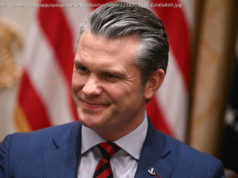A cause, and criticism of it, only highlights that the majority of England fans all want the same thing.
Daniele Orsato caught the eye of Harry Kane, the England captain, and pointed to the turf. He had caught Kane a little unaware, perhaps — the forward was still going through a final few stretches — but he nodded his assent. Orsato, the Italian referee, put his whistle to his lips, and gave light to a six-second culture war. It is not especially unusual for England to find itself putting the finishing touches on its preparations for a major tournament against a backdrop of angst and acrimony. There is, with England, always something: a key player injured, a flavor of the month off the team, a concern over whether the squad is being treated with too much, or too little, discipline. The last few weeks have not proved particularly fertile for that sort of traditional fretting. A manufactured quarrel over whether the coach, Gareth Southgate, had erred by electing to name four specialist right backs — a lot of right backs, by anyone’s standards — on his original roster offered hope of a good, old-fashioned controversy. It sputtered when one of them, Trent Alexander-Arnold, picked up an injury that ruled him out of the tournament. Deep down, nobody thinks having three right backs is excessive. His decision to include Jordan Henderson and Harry Maguire, both of them nursing injuries and neither likely to be fully fit for the group stage, might have made an acceptable alternative, but even that failed to fire. Southgate had the luxury of naming 26 players to his squad, not 23; Henderson and Maguire, two of his most experienced campaigners in the two areas of the field where his options were thinnest, were clearly worth the risk. All of which should have meant that England was in territory welcome for Southgate and disconcertingly unfamiliar for fans and the news media alike: approaching a tournament without waking up in cold sweats in the night, with no rancor filling the airwaves or consternation populating the news pages. Instead, Southgate and his players found themselves front and center in something much more serious. Like the vast majority of their peers in the Premier League, England’s players have, for the last year, been taking a knee before matches, a gesture adopted from athlete activists in the United States and instituted — at the players’ suggestion — in the aftermath of the murder of George Floyd at the hands of a police officer last year. When England took the field for its two final tuneup games ahead of this tournament — both of them staged in Middlesbrough — it did the same. This time, though, the players were jeered as they did so: by a substantial enough portion of their own fans for it to come through, loud and clear, to the watching public.






